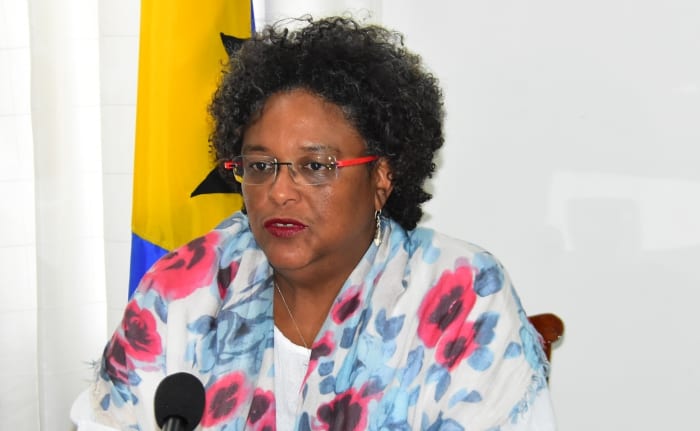
Government remains committed to the transformation of this country.
Prime Minister Mia Amor Mottley reiterated this commitment recently when she was paid a courtesy call by Central Bank’s Visiting Scholar, Dr. Linda Tesar, a Professor in Economics at the University of Michigan.
Speaking during the meeting at her office at Government Headquarters, Ms. Mottley said: “Government is still trying to stabilize one or two things, but for the most part, we are starting the process of transformation.
“It has not been an easy inheritance, but we reckon that if we can continue to stay the course in the next few years, we can reap the benefits. The key is sharing the burden and making sure all do what they need to do.”
The Prime Minister stated that the structural transformation aspect has been exciting because Government had brought greater accountability to the financial system and reformed the town planning system, which had been in existence for many years.
She added that rules governing data protection and privacy would be introduced, and the court system would be restructured, with a dedicated commercial court being established, a family law court being introduced by next year and the expansion of the criminal courts.
She pointed out that Government would continue to bring new pieces of legislation, which would take the country further into the 21st century.
Ms. Mottley said there must be massive retraining across government so as to ensure there is excellence within the public and private sectors.
She noted that almost every area would have to be deconstructed and reconstructed, with officials looking to see if the use of technology would improve the country’s efficiency.
“That process of using technology has to happen across every area of government,” she stated, stressing that citizens should be able to pay taxes and all user fees online.
She pointed out that the Minister in the Ministry of Finance, Ryan Straughn, was currently working on ensuring that digital payments became a reality this year.
Insisting that Barbados was not a low tax jurisdiction as some international institutions argued, she said it had a low corporate tax, but high VAT at 17.5 per cent, land taxes, and import duties and excise taxes.
“But we have allowed others to box us into a narrative that says your corporation taxes are low,” she stated.
She expressed the view that with companies being mobile, corporation taxes would eventually become a thing of the past, with countries taxing more assets and transactions.
She noted that Barbados had been recently removed from the European Union’s blacklist of non-cooperative tax jurisdictions, and it was now working to be taken off its grey list.
During the wide-ranging discussions, Ms. Mottley said she was looking forward to receiving the National Population Commission’s report on expanding the population base, which would soon be handed over.
She surmised that countries which had an open approach to population would grow, and suggested that there was a need to have a conversation about a more liberal approach to immigration.
Dr. Tesar said she had learnt a lot during her two-week visit here, and was impressed with how much Government had been doing over the past year.
The Professor of Economics delivered the 2019 Caribbean Economic Forum on Thursday night, which had as the topic: “In a World of Rising Debt, How Can Caribbean Countries Stay Afloat?”
